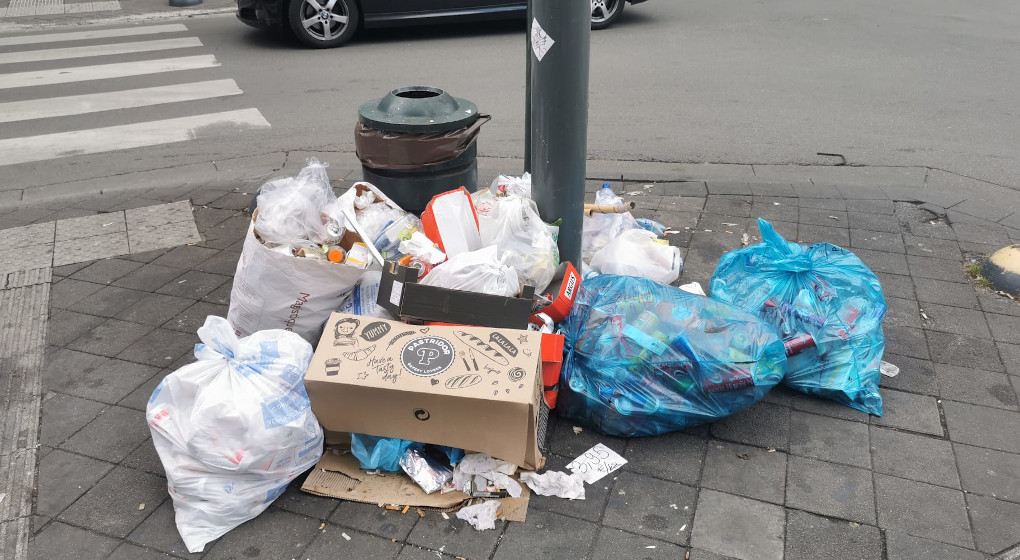Approximately 19 tonnes of illegally dumped waste is collected in the Brussels municipality of Schaerbeek every day. The amount of litter collected in the City of Brussels (Bruxelles 1000) amounts to 2,500 tonnes each year.
Now residents, cleaning services and politicians are crying out for help. While some of the region's 19 municipalities are fairly clean, Brussels as a whole is not, Schaerbeek city councillor for Public Cleanliness Deborah Lorenzino said in a report by the investigative VRT programme 'Pano' on Wednesday.
"It's a disaster," Yves Bertiaux, director of the Operational Service of the regional Bruxelles Proprieté services. "There is an absolute lack of respect for our staff." A survey of local residents shows that they, too, have serious issues with illegal dumping. Speaking of a lack of respect, civic duty and selfishness, residents said that "People are clean at home but they don't care about how things are outside."
If Schaerbeek is doing worst in terms of waste, Anderlecht comes a close second with 18 tonnes per day. In Brussels City, illegal waste amounts to 2,500 tonnes every year – the weight of the Atomium. In more wealthy municipalities, such as Uccle with 85,000 inhabitants, it is only two tonnes per day.
Dirty Brussels
The mountain of collected waste has grown progressively in recent years. Illegal waste collected by the Brussels-Capital Region increased 30% between 2017 and 2021. In Schaerbeek, reports of illegal dumping increased 130% since 2009.
While the city services of Antwerp also collect some 14,000 tonnes of illegal waste per year, Brussels is more often lumped with the reputation of being "a dirty city" – mainly because the litter is often concentrated in busy neighbourhoods such as around the Brussels-Midi/South station.
Brussels Environment Minister Alain Maron told VRT that he wants to be able to collect fines faster, which is why the Regional Government has come up with a new 'Clean Brussels' plan in recent months containing 65 action points. "I am not happy with the way things are. Many investments have been made by the municipalities and the region but the result is not satisfactory,” he said.
Related News
- Brussels makes orange bin bag mandatory from May 2023
- Will Brussels finally have fewer bin bags on its streets?
- Brussels reforms waste collection system: What changes?
The region wants more cameras on the street, fewer collection rounds of residual waste so that people will (hopefully) start sorting their waste better, more cooperation between the municipal and regional services and a doubling of the number of container parks from five to ten.
Additionally, Maron wants waste collection services to be able to collect fines themselves from May 2023. "At the moment, all fines have to go through the public prosecutor's office causing us to lose a lot of time in punishing illegal dumping. That is why we must be able to collect fines faster, more directly."
Figures have only been given from four municipalities, with the full scale of the problem much larger than reported.

